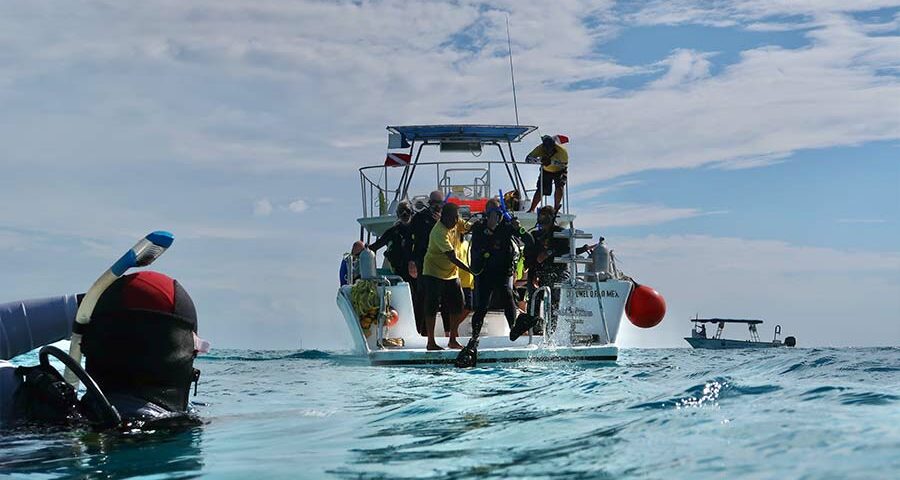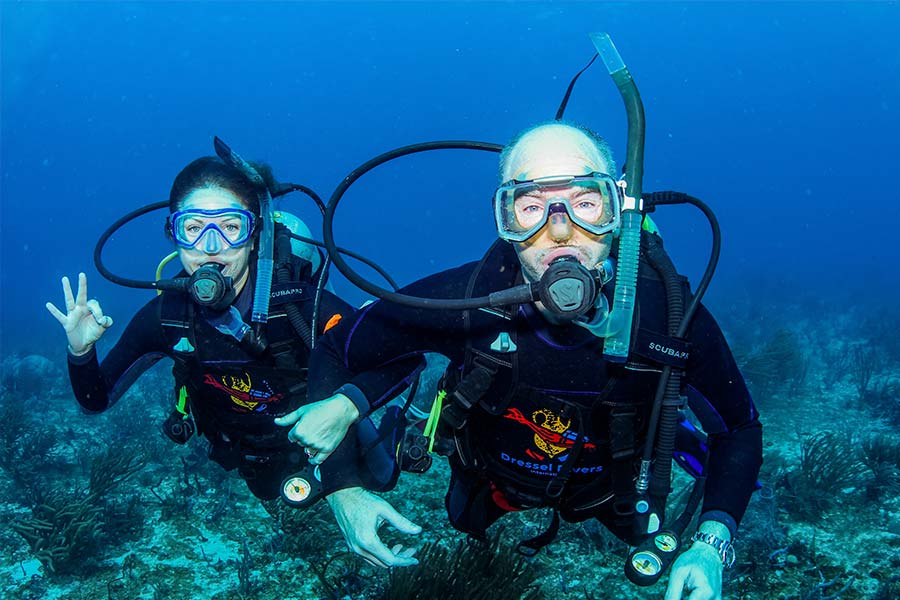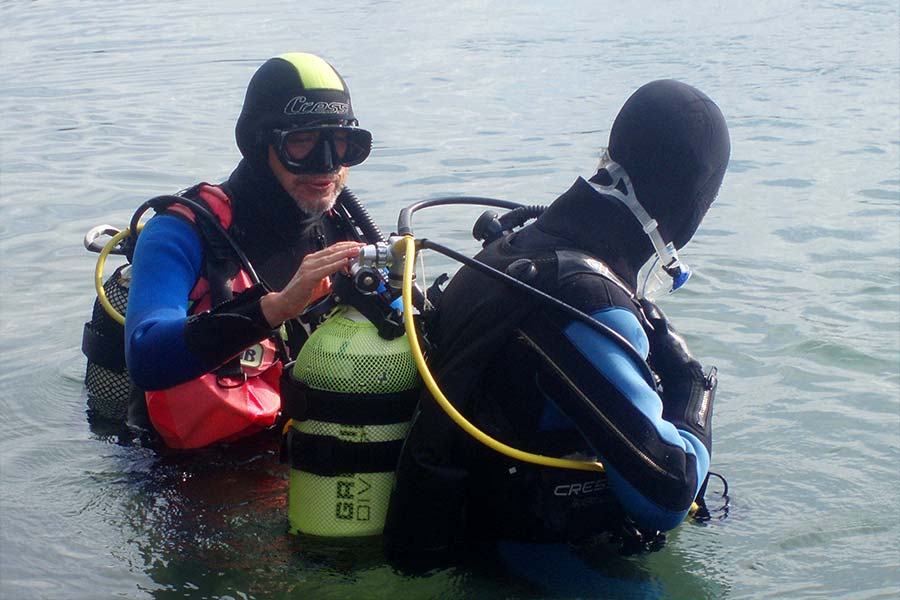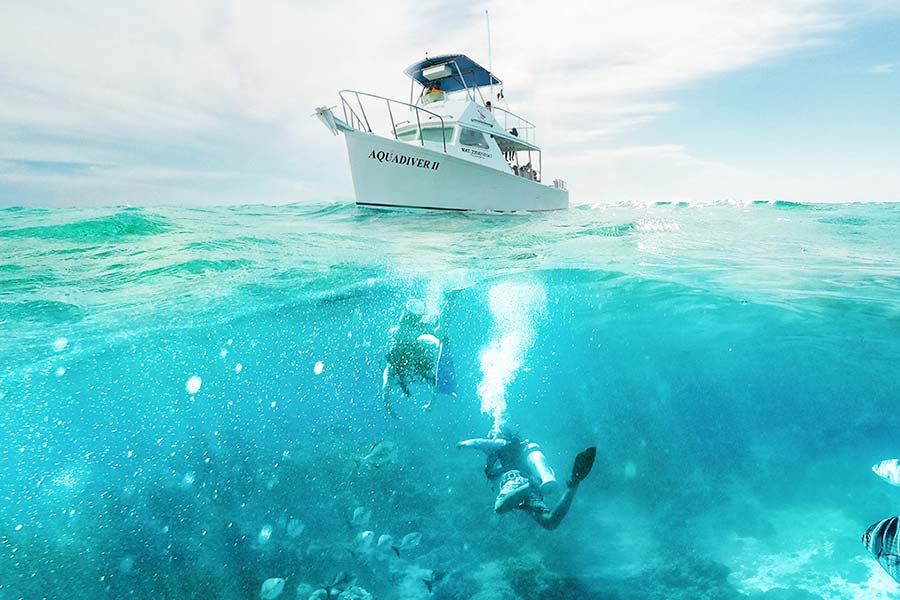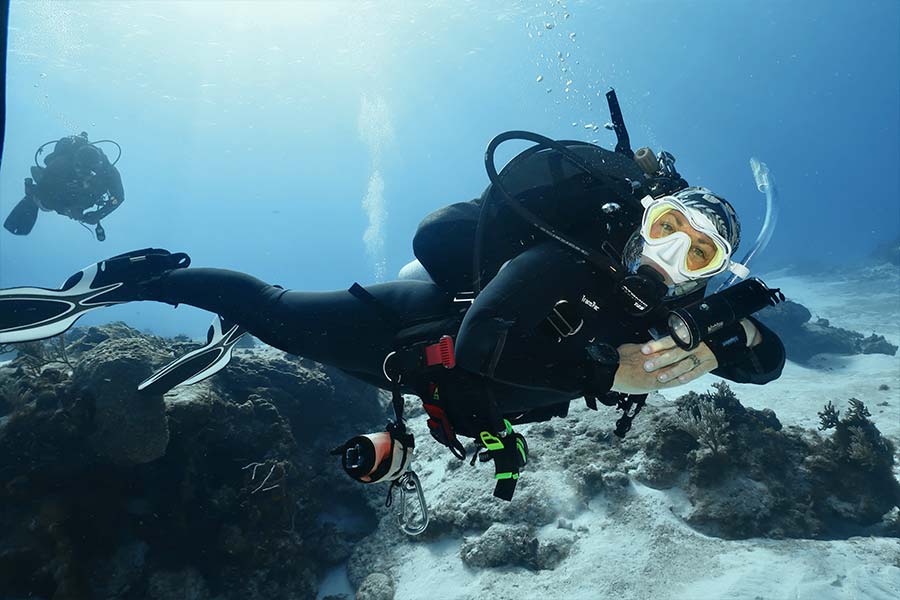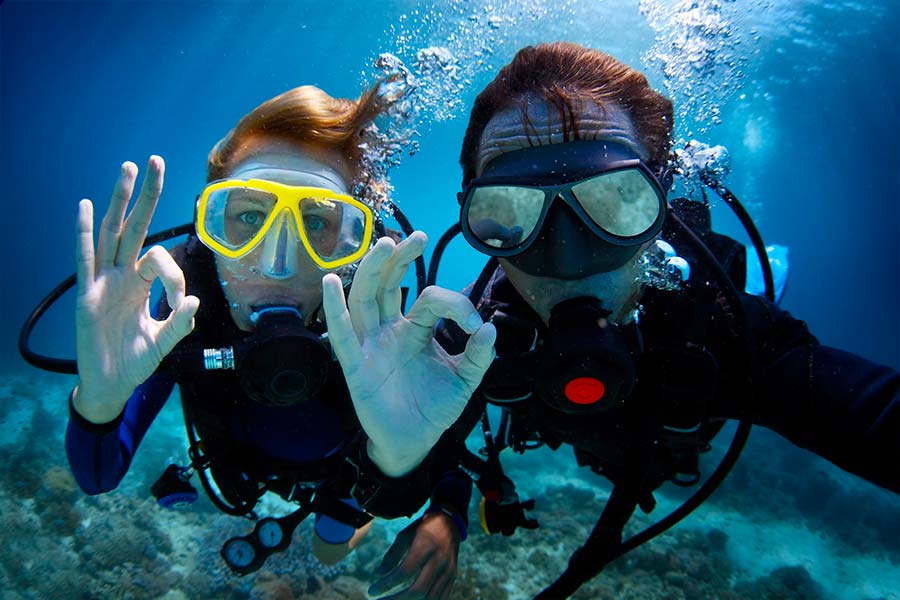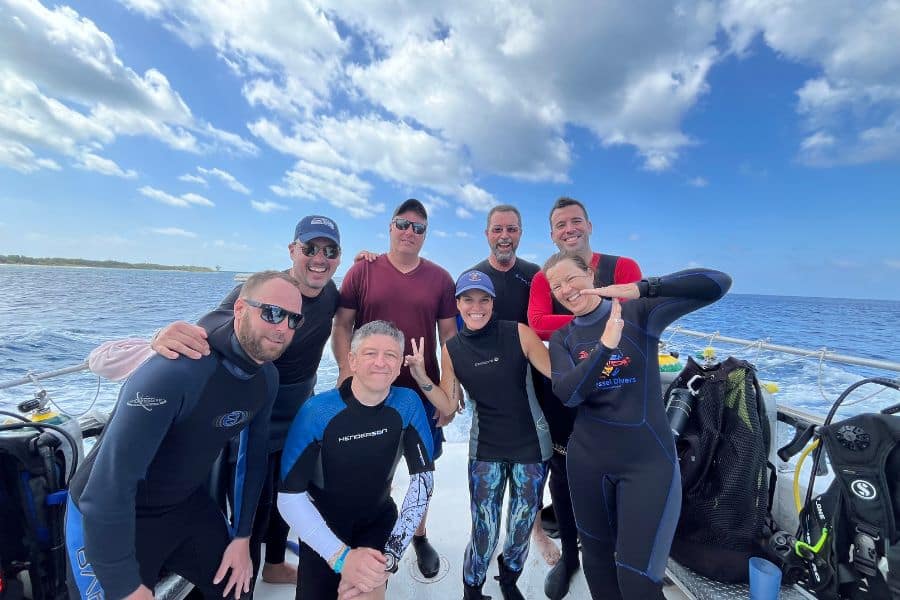3) Follow The Proper Protocols on Board
You would be surprised to know how many people have scuba diving equipment, just like yours. Especially if you have rented it at the dive shop. Climbing on the boat and spreading your equipment everywhere is a big mistake. Keep in mind that this act can cause accidents. But that’s not all; many people remove the things that hinder them to place their stuff on the boat. So, when the owner of that gear looks for it, they don’t find it, causing delays in the departure and frustration for the rest of the group. This doesn’t sound nice, does it?
The best diving tip to avoid situations like these is: to get on the boat, put your things all together and leave them as collected as possible. If the equipment is your property, also mark it with your name.
Another important point on a boat is the diver’s entry into the sea. It doesn’t matter if you make a giant stride or a back roll. The truth is that at that moment your visibility is limited by the mask, by the team or because you are with your back to where you are going. In other words, if you are not careful you won’t completely know what is happening in the water.
So, follow our scuba diving tip and wait for the double OK signal of the crew and your diving partner.
This way you will avoid mishaps. In the article The Dos and Don’ts on A Dive Boat you will find these and other tips to move about safely on a dive boat.
4) Descend And Ascend Following a Line
We already know that divers prefer to free fall into the blue of the sea. But if we want to improve our performance, our dive tip is to ascend and descend following a line. How to do it?
Close to the line and with it between the legs. So, if the current is strong, you will not be at risk of losing the line and getting lost.
Why should we use the line?
Have you ever heard the awful phrase “I will wait for you down there”?
It means you intend to move without waiting for your buddies at the most critical moment of a dive. However, descending and ascending along the line avoids this situation since all the divers descend at the same line, making it easier to meet at the sea bed. Also, if someone has a problem, the rest can wait for him or her and offer air if necessary.
When you ascend using the rope, you no longer depend only on the strength of your flapping fins. You could freehand climb the line straight to the boat if there were a problem.




